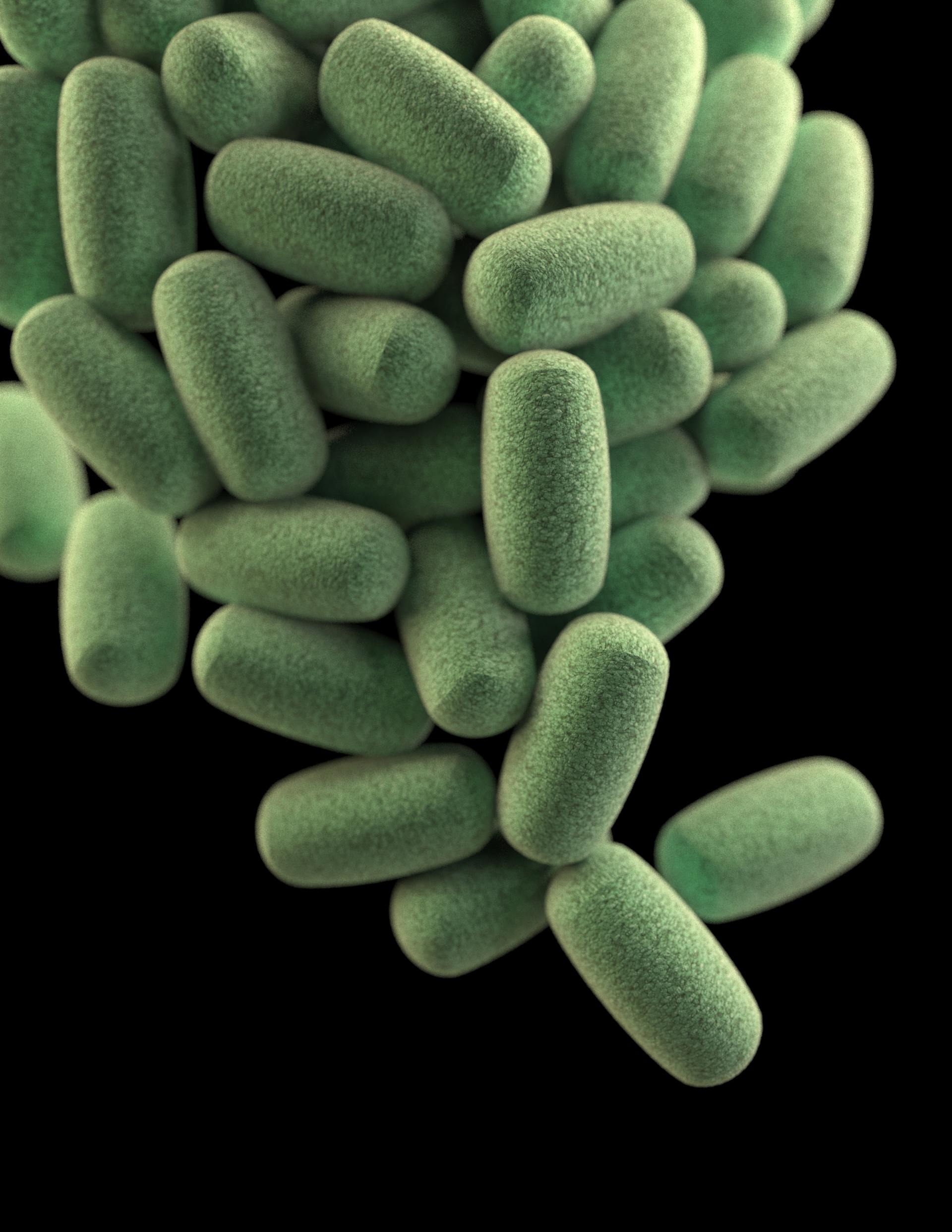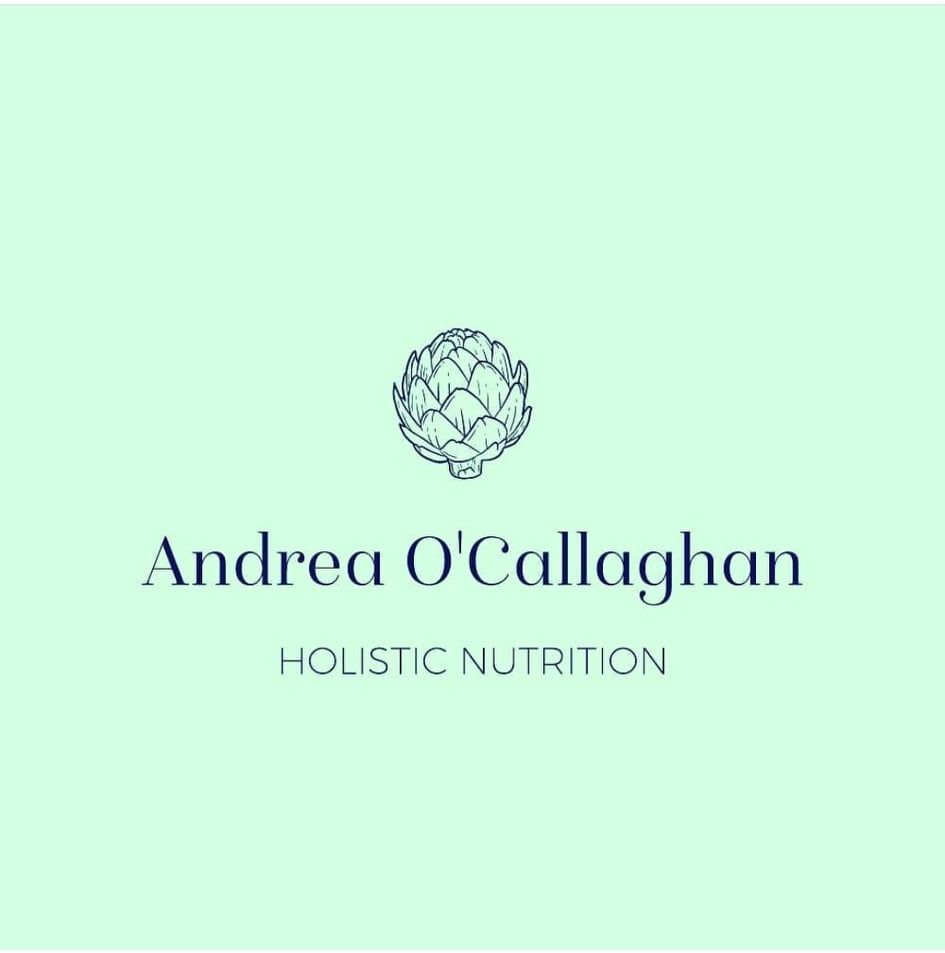Diversity – The Key To Gut Health
Andrea O'Callaghan • March 9, 2021
Diverse diet = Diverse microbes = Good health!
The formula is simple: Diverse diet = Diverse microbes = Good health
. That is all we have to do help improve our gut health. The problem is we do not have a diverse diet.
I remember when I used to eat the same thing for breakfast EVERY DAY when I was in high school, for example (we won't dwell too long on the fact that it was cinnamon sugar toast). Even as I got more health conscious and upgraded my breakfasts to include smoothies, I would make a smoothie every morning! Definitely an improvement over cinnamon sugar toast, but the same thing every day is not ideal, either.
This is not just about
a processed diet vs whole food diet. Yes, a processed food diet is bad for our good microbes, but a whole food diet that is not diverse can also be problematic for the diversity of our gut. Most of us consume no more than 15 different foods in a week. This is not diversity, even if we hit all the
food groups.
Then there are those who choose to eliminate food groups such as grains and legumes. This is taking out a range of substantial foods that will feed many beneficial bacterial species. And believe it or not, there are still people – adult people – who refuse to eat vegetables, and they are proud of it. Again, vegetables represent all kinds of foods that will feed a lot of different species. This is just basic diversity, and it gets more complicated.
So not only do we all need to be more adventurous and try to eat different foods, we need to eat d ifferent
varieties
of the same food. This
is one of biggest changes we have had in our diets that make us different from our ancestors. They ate a greater variety of foods than we eat today, and they grew different varieties of the same food.
This was good for the soil, it helped protect them against potential crop loss, and it increased the nutrients
available to them in their diet. J
ust like with money, it is important to diversify. Today, agriculture does not function that way. Farmers grow few crop types, and seldom do they grow more than one variety of the same crop. There are over 6000 varieties of tomatoes – each one has different properties and a different nutrient composition!! We are missing out on a lot. And while we cannot possibly consume 6000 different varieties, we can expand our repertoire, especially in the summer, and seek out as many varieties as we can find. Heirloom varieties are something I get really excited about when it comes to growing things in my own garden.
So while researchers continue to unravel the mystery of our gut and figure out what we should feed it,
specifically for specific benefits, we can do more to increase the diversity and build a stronger gut by eating new foods. This week, buy three new foods you do not eat regularly. They can be foods you have never had or foods you like but for some reason never buy. Here are a few things you can do to diversify:
- Buy yellow or rainbow beets instead of red beets. Choose purple or white carrots instead of orange.
- Look for heritage varieties and buy them when you find them.
- Go to farmer’s markets and talk to the local farmers. Generally, these are the farmers who still grow a variety of crops. Let them know you are interested in trying different varieties of tomatoes or potatoes etc.
- Shop at ethnic stores and look for new grains and legumes.
- Go to ethnic restaurants - this way someone else can prepare the foods for you.
Reference: Mark L. Heiman, Frank L. Greenway. A healthy gastrointestinal microbiome is dependent on dietary diversity. Molecular Metabolism, 2016; DOI: 10.1016/j.molmet.2016.02.005

Would it surprise you to know that you are more bacteria than you are human cells? You have anywhere from 1.3 to 10 times more bacteria than cells in your body. Having a range like that may seem confusing, but that is just the way it is. We are in the frontier days when it comes to knowledge about the bacteria in our body and what it does for us. Most people are afraid of bacteria, not knowing that the majority of it is called “good bacteria,” playing many beneficial roles in and on our body to keep us healthy. There is, of course, bad bacteria, but 85 percent of the bacteria in a healthy body is the good kind. They keep the bad guys in check and, in turn, the bad guys give the good bacteria a workout. This workout keeps our good bacteria in top shape to perform the many functions necessary for our wellness, the main ones being: Help with digestion of all foods – having food allergies, sensitivities and intolerances are directly caused by a lack of good bacteria. Don’t blame the food – fix the gut! Break down normally non-digestible components of food, such as dietary fiber, into molecules that the body can use for fuel. Helps eliminate waste materials, preventing both constipation and diarrhea. A healthy gut microbiota has been shown to help coordinate the contractions of the intestinal walls, helping move food through the gut at a healthy rate. Works synergistically with fiber and phytochemicals in foods to ensure proper absorption of nutrients. Protects the intestinal gut lining and defends against bad bacteria and other pathogens. Regulates inflammation. Helps with mood disorders such as depression and anxiety. Helps regulate weight and prevent obesity. Boosts immune system function. Communicates directly with the brain as part of the brain-gut connection and produces important neurotransmitters. Helps regulate blood sugar, insulin levels, blood pressure and cholesterol. Supports the function of the liver and kidneys. Prevents infections throughout the body. Potentiates phytochemicals in foods to be more powerful. Deactivates any potentially harmful chemicals found in food. Helps detox out heavy metals and other toxins before they enter the body, saving the liver some work. Let's look at some of these in more detail..... Your Gut Health Affects Nutrient Absorption Fascinatingly, some species of gut bacteria are better at converting non-digestible food to fuel than others. This means that, depending on the species of bacteria living in their intestines, people extract a different number of calories from the food they eat! Studies indicate that individuals with unhealthy gut bacteria end up absorbing hundreds of calories more than people with healthy bacteria, from the same exact meal. Such studies indicate that having good gut health can help you maintain a healthy energy balance, avoid weight gain, or lose weight. A Healthy Gut Protects You from Infections, Potentiates vaccinations Since the gut microbiota never comes into contact with bacteria living anywhere but the intestines, scientists were surprised to discover that a healthy gut microbiota also helps kill off infections in the rest of the body. Studies now show that this is because healthy gut microbes are able to boost the function of the entire immune system. Multiple studies have shown that a healthy gut microbiota increases the total number of white blood cells available to surveil your body for intruders. Moreover, recent studies show that healthy gut bacteria also increase the ability of immune cells to kill their targets. A greater number of deadlier white blood cells provides a serious boost in immune function! In fact, evidence suggests that a healthy gut microbiota can increase your ability to fight off everything from a simple sinus infection or yeast infection to a life-threatening infection, like pneumonia. A healthy gut microbiota may even boost your immune system enough to make vaccinations from your doctor more effective. Vaccines work by introducing a part of a dangerous bacteria or virus to your immune system so that it can recognize the whole bacteria or virus if it comes across it later. A healthy microbiota boosts the ability of white blood cells to find and memorize these pieces, improving how well the vaccine can protect you. This has been proven for specific vaccines, such as the flu vaccine, but future studies may show that this effect is common for most vaccines. A Healthy Gut Prevents Systemic Inflammation I have mentioned that there is evidence that a healthy gut prevents systemic inflammation. Systemic inflammation describes a state where the immune system produces the chemicals it uses to fight an infection even though there isn’t an infection. The immune system releases these “inflammatory mediators” in response to signals you would have if you DID have an infection, such as high blood sugar or cholesterol. (These imbalances can occur as a result of a less-than-optimal diet or high stress, for example.) The inflammatory chemicals would be efficient to damage the agents of infection and clear away the destruction an infection would create. If there is no acute (short-term) infection, and the signals like high blood sugar or cholesterol persist (becoming chronic, or long-term), the inflammatory chemicals turn against us and cause our own cells and systems to break down. Over long periods of time, damage to your healthy cells from the release of inflammatory chemicals can lead to many of our most common chronic diseases, including: obesity, type 2 diabetes and cancer. We have a huge component of our immune system in our guts. Good gut bacteria produce specific kinds of sugar complexes that can enter the intestinal wall and activate a group of our immune system’s white blood cells called T-regulatory cells, or T reg for short. Activated T reg cells send calming signals to the body, which reduces the inflammatory response that has the potential to cause so much harm. In the end, though, we want to remove the CAUSE of the inflammation so our bodies don’t have to continually do damage-control….more on inflammation in another post! Autoimmune Diseases Evidence suggests that a healthy gut microbiota can alleviate the symptoms of an autoimmune disease. This is due to the ability of healthy gut microbes to activate the T reg cells mentioned above. T reg cells can “turn off” immune cells that are attacking your own cells, helping slow down the damage to your tissues and organs. Gut bacteria and mental health The human gut is lined with more than 100 million nerve cells, more than in the spinal cord or in the peripheral nervous system. Yes, we have brain cells in our large intestines! This explains why antibiotics which disturb the gut microbial ecosystem might cause neuropsychiatric effects, interact with psychotropic medications, and/or influence our mood. This also explains why mood disorders are so prevalent in patients with irritable bowel syndrome. Patients with psychiatric disorders have different populations of gut microbes compared to microbes in healthy individuals. Chemicals implicated in depression and happiness such as serotonin are also found in the gut; 90 percent of serotonin is manufactured in the digestive tract and not the brain! (Many antidepressants work by increasing serotonin.) Gut microbes transform fiber into short-chain fatty acids (SCFAs). The levels of these SCFAs are communicated to the cells that produce serotonin, affecting how much serotonin is released. Scientists have found that gut bacteria produce many other neurotransmitters such as dopamine, norepinephrine, acetylcholine, and GABA, which are critical for mood, anxiety, concentration, reward, and motivation. The gut microbiome can also cause changes in how our brains react to these chemicals. Exposure and consumption of good bacteria are necessary for a balanced brain. Studies found that in germ-free sterile mice, there is an imbalance of brain chemicals in areas important for emotions and mood. Also, there are significantly more inflammatory chemicals in the brains and bodies of depressed people compared to non-depressed ones. This effect on the inflammatory system may be related to a dysfunctional gut microbiome in depressed individuals. Also, stress makes us more likely to develop mood disorders. And stress makes the gut more prone to bacterial imbalance. Stress and stress hormones such as cortisol can have a negative impact on our microbiome. Reciprocally, depression causes dysbiosis. A strong microbiome can make us more resilient to depressive states after stressors or trauma. It is not surprising that chronic exposure to stress is associated with a higher incidence of depression, anxiety, and PTSD. But not everyone who faces stress develops a mood disorder, and not everyone who experiences a trauma develops PTSD. Scientific studies about resiliency, the ability to recover quickly from difficulties, are showing that it may be a function of what bacteria lives or does not live in your gut. How can gut bacteria affect higher functions in the brain?. One way that has already been mentioned above is that gut bacteria produce neurotransmitters that are important for behaviors, mood, thoughts and other cognitive abilities. Also, some microbiota can change how these brain chemicals get metabolized in the body and thus determine how much is available for action in blood circulation. Other chemicals generated by gut bacteria are themselves neuroactive, such as butyrate, which has been shown to reduce anxiety and depression. Another pathway is the vagus nerve, which is one conduit for the bidirectional gut-brain communication. The immune system is yet another one. The immune system is intimately connected to the gut microbiome and the nervous system, and thus can be a mediator of the gut’s effects on the brain and the brain’s effects on the gut. What all of the above findings strongly suggest is this: Take care of your gut bacteria for good quality of life, better immunity and mental health, and a sharper brain. But HOW can we do this?? There are many things you can do to improve your microbiome health, but learning about the key foods that will support your efforts is the best place to start. Stay tuned for more on this topic to come.


